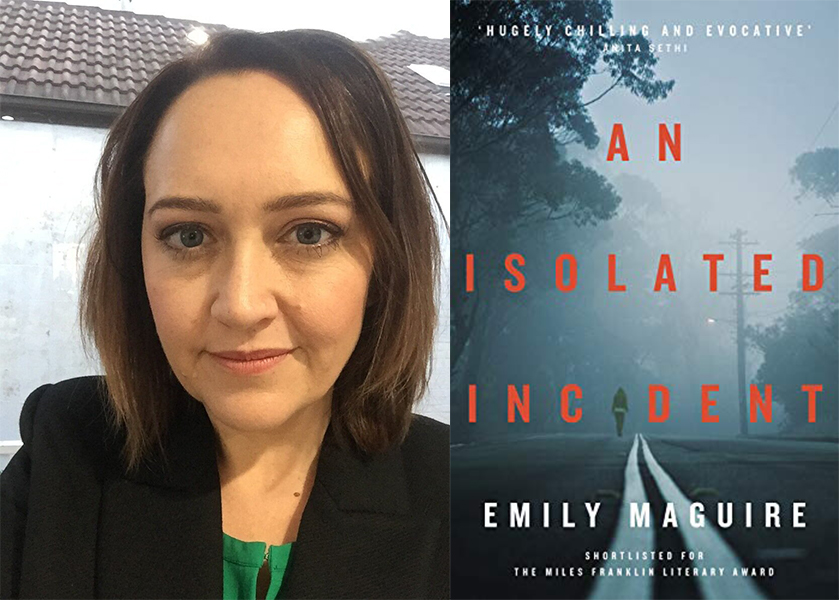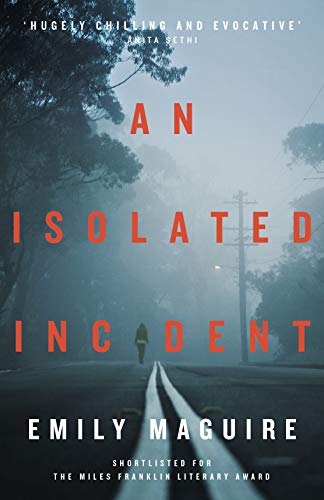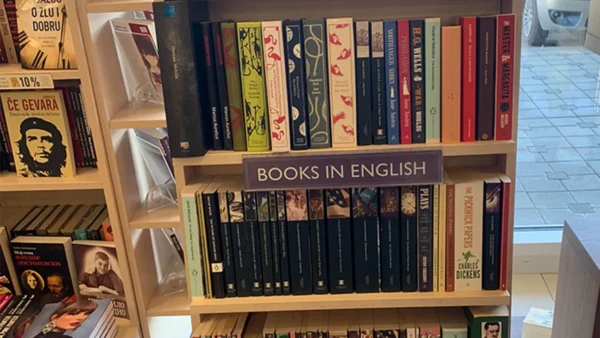An Isolated Incident by Emily Maguire is an Australian crime novel that throws the crime-writing conventions out of the window. It’s more about male violence and sexual aggression than about solving the murder with which it starts.
I’ve written before about my frustrations with the limitations of many crime novels. I found it refreshing, therefore, to read An Isolated Incident by Emily Maguire, an Australian crime novel that throws the crime-writing conventions out of the window.
There is a murder at the beginning of the book, a police investigation, the uncovering of secrets, the development of new leads, and a parade of convincing suspects. There’s even a crusading journalist and a grieving sister who seem destined to join forces and solve the crime when the police can’t. So far, so conventional.
The thing is, none of the leads actually lead anywhere. The suspects all turn out to have convincing alibis. The investigation rambles on, but it doesn’t really get anywhere. We start to realise that this is not a novel about the heroic detective or the villainous criminal. They fade into the background. The murderer’s identity is eventually revealed in the last few pages, but it’s deliberately anticlimactic. The point is not the clever solution of a puzzle or the satisfaction of justice being served.
So what is An Isolated Incident about, then? To me, it’s a novel about misogyny and male violence. It’s clear that the murder of Bella Michaels is not an isolated incident at all. There are countless incidents of male aggression towards woman throughout the book. Even a sympathetic male character like Nate, the loving and supportive ex-husband of Bella’s sister Chris, has an old conviction for breaking his girlfriend’s nose with his fist.
Bella’s murder soon becomes old news as new murders take the headlines: a young woman shot in the head by her husband, a rich Sydney woman whose body is left to rot in the street, and on and on. The stench of male violence and sexual aggression seeps through every page.
But An Isolated Incident is also more than a story about male violence. I think the real subject is how women cope and live in a world of such constant menace. Maguire beautifully captures the precarious strategies that both main characters use to defuse the threat. May, the journalist, is shouted at in the street and keeps her head down and walks faster until she reaches a house to ask for help. Chris uses humour, flirtation and her own sexuality to control the lewd customers in the bar she works at.
The novel is written in two main voices: Chris’s first-person narration interspersed with third-person sections describing the story from May’s point of view. Chris’s voice is very colloquial, and the prose is not beautiful at all. Here’s the opening, which to be honest made me put the book down a couple of times before finally reading it:
“It was the new cop who came to the door, the young fella who’d only been on the job a couple of months. I thought that was a bit rough, sending a boy like him to do a job like that.”
The third-person sections describing May’s perspective are written in a more neutral tone, less colloquial but not exactly beautiful either. I soon relaxed into the novel, though, and got used to the style. It’s appropriate to the world Maguire is describing: a small Australian country town, frequented by truckers stopping off on their way between Melbourne and Sydney. It’s a simple, harsh, sometimes violent world, and the unvarnished prose fits perfectly.
I enjoyed An Isolated Incident for the way in which it subverted my expectations as a reader and delivered something that felt more real and true than what I was expecting. It’s a thought-provoking novel featuring flawed characters, messy lives, inconclusive investigations, and an ending in which things don’t neatly end. Highly recommended.





There are 4 comments
This sounds smart and engaging. It recalls a series of books that I read a few years ago by Lene Kaaberbol and Agnete Friis, that took on similar issues and concerns.
It was! Hey, thanks for the recommendations too – I don’t know either of those writers, but will look them up now!
I’m not a crime reader, but if I were, this is the sort of book I like. Kudos to the author for defying genre convention!
Me neither 🙂 If you ever do feel like trying a crime novel for a change, this is definitely one I’d recommend.